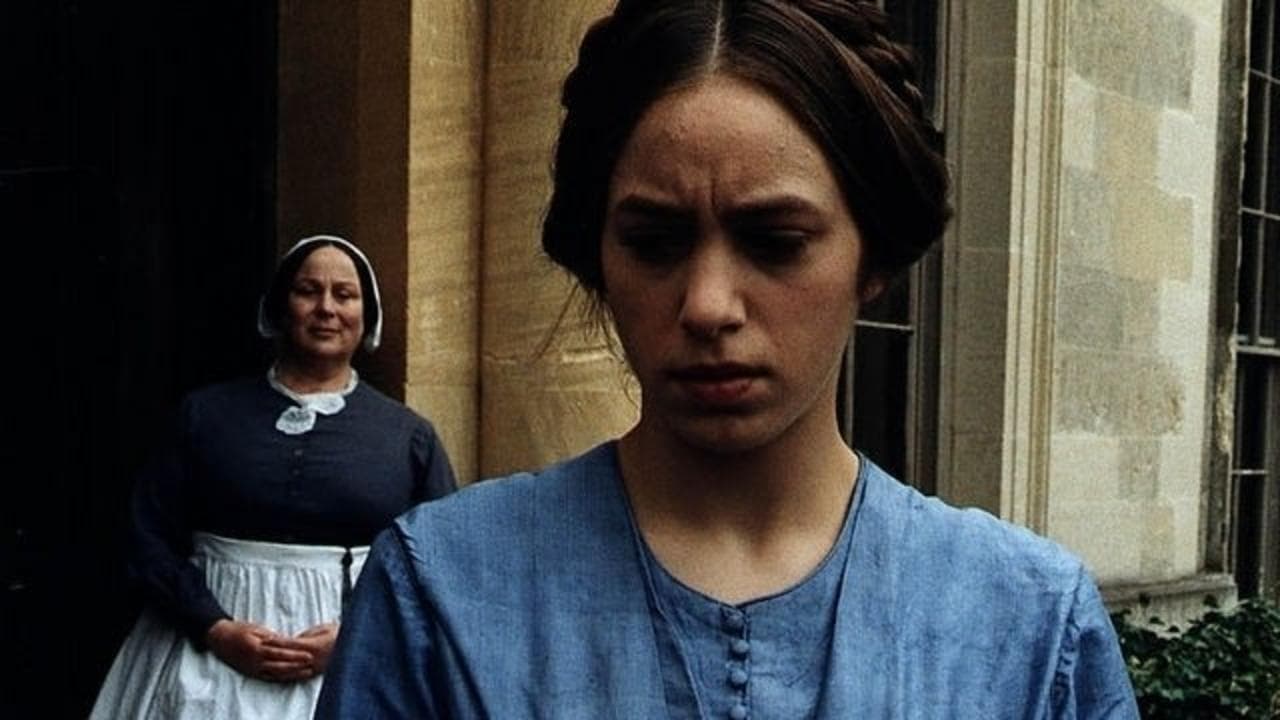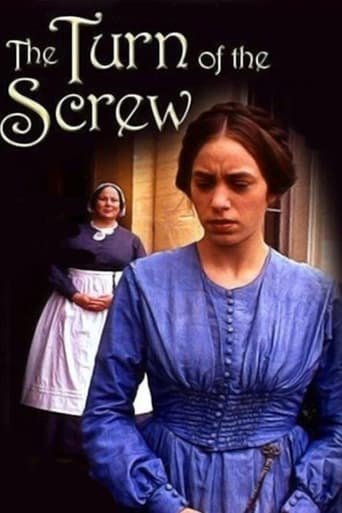

A wonderful screen adaptation of Henry James ghost story. There are a fair few versions of the story both direct and oblique (a recent, successful version was The Others with Nicole Kidman). This film manages capably the understated, romantic sweep and lyricism in Henry James prose with the shocks and insidiousness that are also hidden within.Colin Firth, who was something of a superstar at the time, may only appear briefly as a mature Byronic patriarch at the beginning but it's all he needs to give the whole enterprise a sense of privation, melancholy and sexual charge. Consequently there's always the possibility that the Governess ('Miss' in this version) is projecting her own sexual longing into spaces rather than actually seeing sexually malign spectres. Johdi May nurtures this potential but in a straightforward performance of power without melodrama. It's all pretty creepy and engrossing. 7/10
... View MoreI read "Turn of the Screw" over 20 years ago but I recall that it struck me as dead boring. I watched this adaptation in the hopes the story would grow on me over the years. Alas! The film has lovely sets, costumes, and music. It occasionally has decent acting. But overall it can be watched on fast-forward most of the time and not lose anything. Perhaps it relies on the idea that viewers will be so familiar with James' story that dialogue and even (gasp) exposition might be necessary to flesh things out a bit. I learned more from reading the viewer comments here than I did from watching the film.Poor Jodhi May must have drunk gallons of water during filming, since she seems to spend about 50% of her on screen time with eyes bulging and her mouth hanging open. Her descent into madness is believably gradual, but her Victorian ideas of purity and evil seem to leap from nowhere. Her character desperately needed context in order to be more clear.I saw "The Innocents" with Deborah Kerr a few years ago and it was genuinely creepy. This Masterpiece Theatre production lacked Innocents' clarity of narrative and commitment to interpretation. Instead, it wandered through far too many long shots, pan shots, and crane shots across an English country estate. And the ending was completely anti-climactic, with May's emotional level the same as it had been throughout most of the rest of the film, when instead it should have been leaping off the screen.Three stars for pretty pictures and occasional acting; minus seven stars for poor script, vision, and direction.
... View MoreThe most daring thing about this adaptation of Henry James' classic tale is the way that stunning newcomer Jodhi May plays the ghost haunted governess as a living, breathing girl with flaws rather than a lifeless model of prim perfection. Deborah Kerr's interpretation in the earlier film version (titled THE INNOCENTS) was so cool and crisp that there was never any doubt that the governess would overcome the evil ghosts (and save the rotten children who serve them)through sheer icy self-control, pure virginity and stubborn virtue.Jodhi May's performance shows more psychological depth, depicting a governess who is menaced not only by the ghosts themselves but by her own voluptuous desires. Temptation surrounds the governess in this version, not only in the attentions of her devastatingly handsome employer (a stunning and very youthful Colin Firth) but also in the very comforts and luxuries of her position on the secluded estate.Watch the way she succumbs to the charms of Miles' piano playing in the film's climactic scene, not only losing track of the time but falling little by little into a deep, drugged sleep. The two children are both shown as being more alert, more aware, than the lovely governess, whose nights have been quite sleepless owing to both ghostly terrors and erotic dreams of her employer. During the piano scene, Jodhi May's shifting expression is worth watching closely, as her bewitching gray eyes sink from stern watchfulness to drooping weariness, an unwilling surrender every bit as haunted and erotic as her dreams. Note how the camera very knowingly cuts back and forth from the heavy eyes of the governess to the light fingers of Miles at the piano, his skill meant to suggest the feather-soft touch of a lover. There can be little doubt that this image suggests a woman who bears her crystal pure virginity not as a shining shield but as an exhausting burden. She wants to have her employer's hands touching her lightly and knowingly, drawing forth her full desires the way Miles draws exquisite melody from the piano. Her deep sleep leaves her at the mercy of the children, but it results from the adult strain of holding her own sensual desires at bay. What a rich, haunting story, and what an authentic, womanly performance from the beautiful Jodhi May!
... View MoreThe turn of the screw is one of Henry James' easiest novel to read, and also one of the scariest books ever, for its sense of suspense and that way to play with your nerve. And it has very cinematographic writing, when reading the most intense parts of the book you can't help but seeing it, it just scream for a movie adaptation. Well this film is as a whole quite good, very faithful to James' text. It doesn't reduce it to just another ghost story, but respects that the characters' psychology and neurosis really are the heart of it. The cast is very good, especially Jodhi May. But that little Miles boy couldn't ever be described as an angel, he's just evilly annoying and obnoxious from the start. Colin Firth, as "the master", has approximately 3 minutes of screen time to settle his dashing, charming gentleman of a character, make the governess so in love with him that she'll accept the weird job condition (and may even explain her later neurotic state), and make such an impression that has to last 'til the movie end. And he does that just well, because he's sooooo adorable. My only disappointment is the lack of general atmosphere, it's mostly too distant, and scenes like the first appearance of each ghost don't produce the shock expected (well, if you've read the book...). All of other "ghosts scene" is quite effective, if not very subtle (think dramatic music). The very end is also a lot more explicit than in the book.
... View More